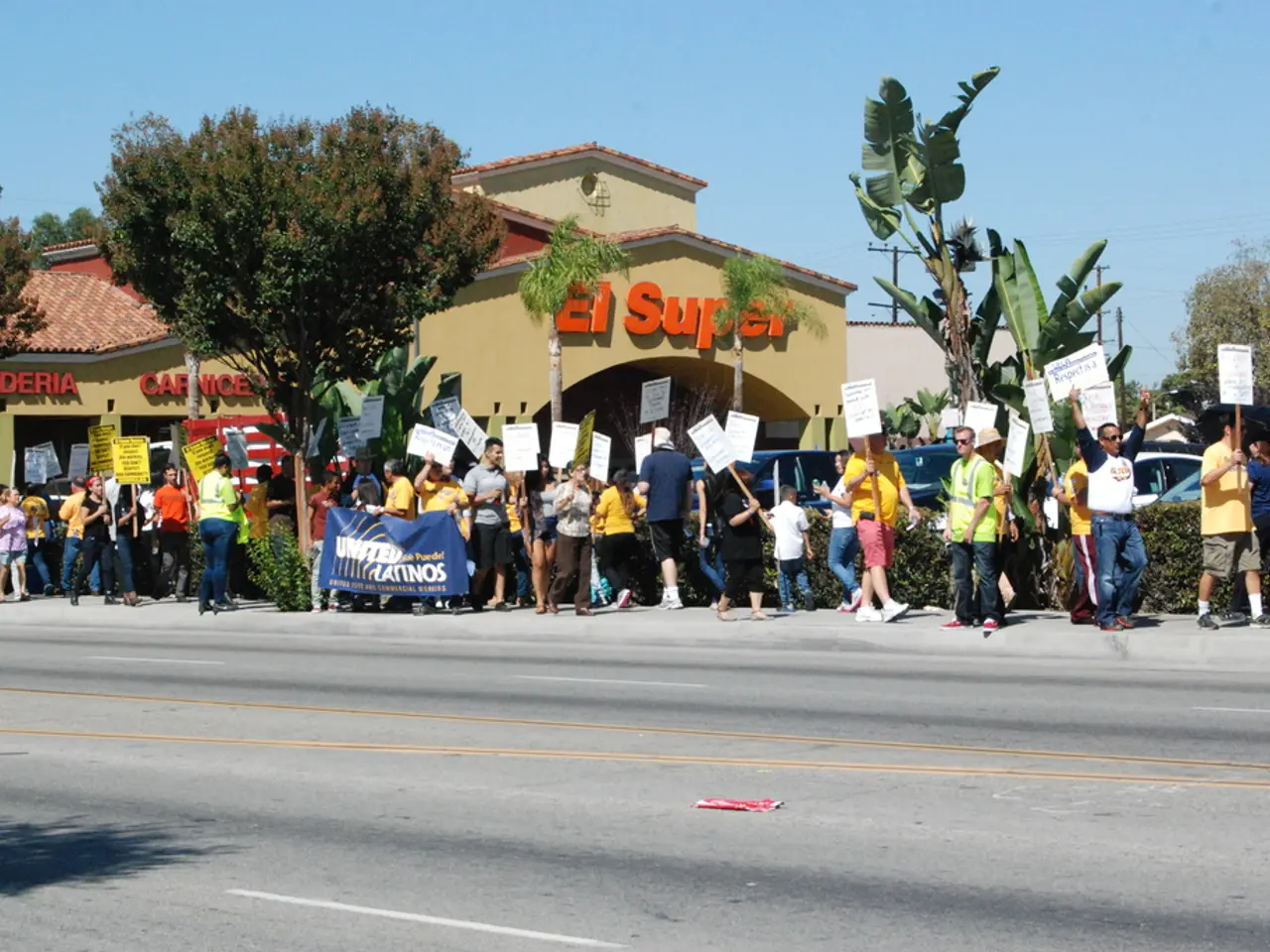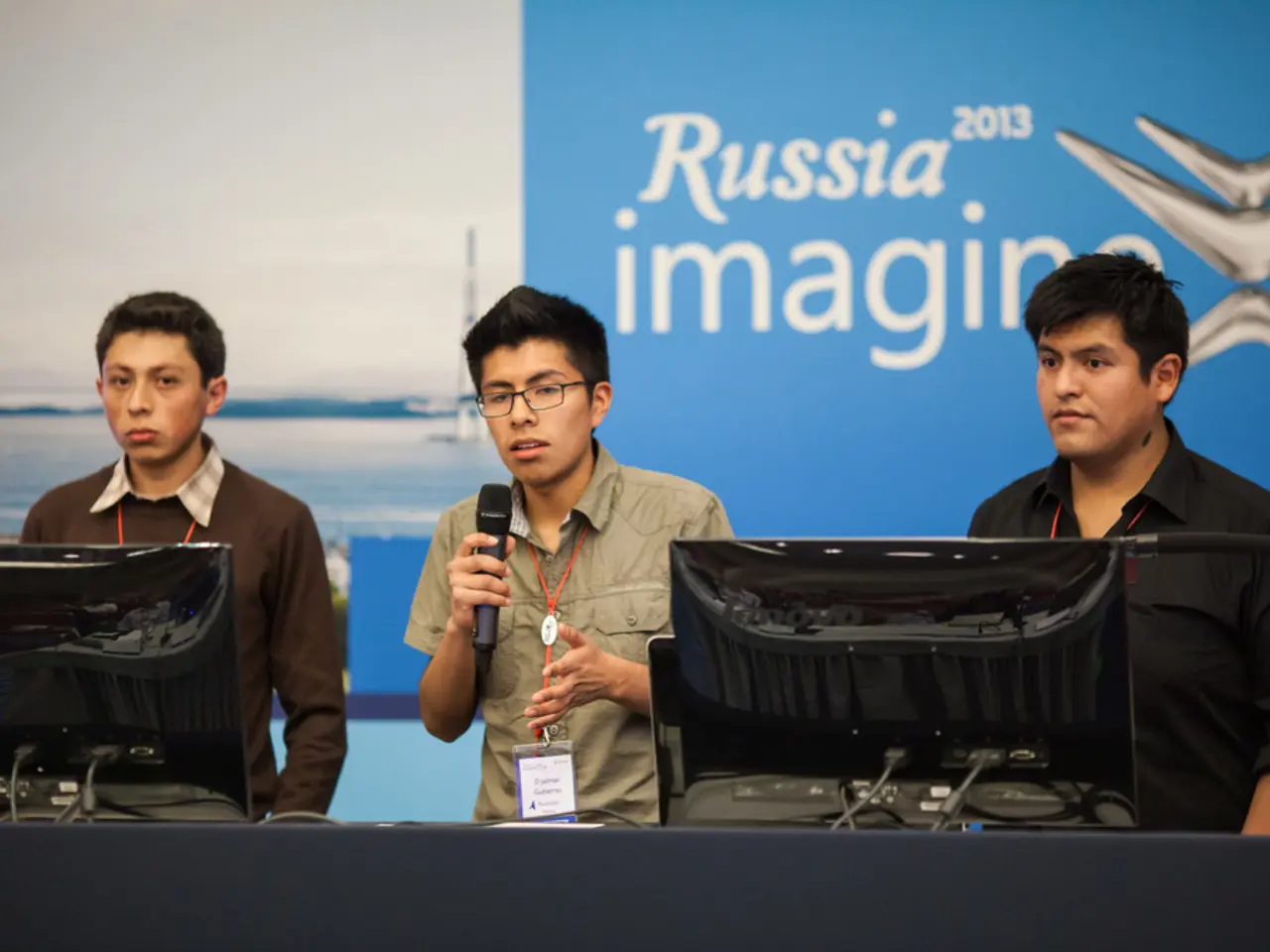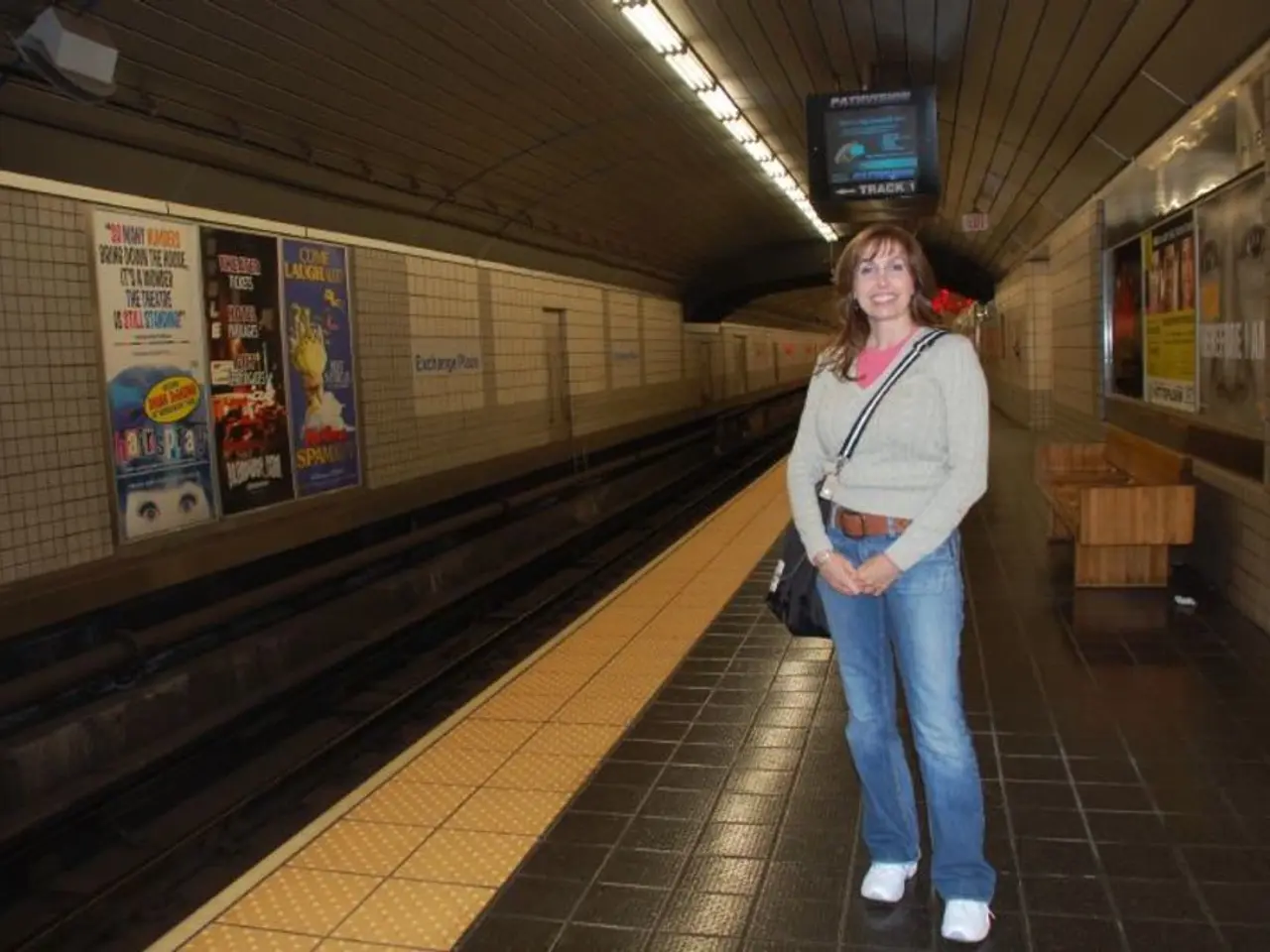Two Years Without Family: Bundestag's Decision on Refugee Family Reunification
EU and SPD collaborate on strengthened policies towards asylum seekers
By giving the green light to the CDU, CSU, and SPD, the Bundestag is preparing to temporarily halt family reunification for two consecutive years for people with subsidiary protection status. Here's what's at stake for thousands of refugees.
Friday morning, the Bundestag is set to debate the suspension of family reunification for those with subsidiary protection status. This measure, strongly debated by Jusos and older left-wing SPD members, could have potentially shattered the black-red coalition. Yet, the majority of SPD members, disillusioned by the election results, have adopted a more hardline stance on immigration policy.
The decision concerns around 1,000 individuals – mostly children, spouses, or parents living outside Germany with family members sporting subsidiary protection status. Most hail from Syria, Afghanistan, Iraq, and Iran. Subsidiary protection offers temporary residency to refugees who face home country dangers such as ongoing war or persecution due to their ethnicity.
Access numbers for these individuals have been limited since 2018, with demand consistently surpassing availabilities, although exact figures remain unknown. Overloaded consulates and extended application processes raise suspicions of bureaucratic barriers intentionally reducing intake.
A Decreasing Trend in Migrants
The black-red coalition's more restrictive approach to immigration is evident in figures that strongly reflect this shift. Compared to May 2023, first-time asylum applications in May 2025 have dropped by 50%. This drastic decline can be observed in the 12 preceding months as well, signaling a continuing drop in irregular migration.
The move to suspend family reunification builds upon these efforts, targeting individuals who enter the country under more controlled circumstances – namely those who come legally through such reunification and usually by airplane.
Critics Slam Proposed Legislation as "Family Destruction Law"
The decision has sparked heated opposition, especially among human rights organizations. People living in Germany would suffer from integration difficulties if they remain alone while their families reside in uncertain conditions. Additionally, critics fear that these individuals, left in limbo for extended periods, may resort to dangerous illegal immigration channels out of desperation.
The proposed legislation does not provide a cut-off date, potentially impacting both those who had already applied and those yet to do so equally. Critics argue that exceptions provided for hardship cases are mere window dressing, as the number of exemptions granted during the previous suspension period was marginal.
Defenders Justify Policy as a Response to AfD's Influence
Supporters of the suspension hold that family reunification serves as a strong motivating factor for fleeing to Germany. By limiting family reunification rights, they aim to address the "pull factors" encouraging illegal immigration. Critics like Green Euro politician Erik Marquardt have questioned the SPD's stance, labeling it as an unfulfilling compromise to the AfD's anti-asylum ideology.
Political Fallout: SPD Faces Challenges from Left and Within
The election shift in February has left the SPD grappling with its approach to immigration policy, particularly among its own voter base. The party has lost support to the far-right AfD, with workers increasingly inclined to favor stricter immigration policies. The Left party, opposing the bill, has requested a roll-call vote, potentially teeing up SPD candidates to defend their stance on family reunification in future elections.
Source: ntv.de
About:
- SPD
- The Left
- Alliance 90/The Greens
- Migration
- Immigration
- Black-Red
Insights:
- The German government grants subsidiary protection status to refugees who do not meet the Geneva Refugee Convention’s requirements but cannot be deported due to human rights concerns.
- The suspension of family reunification impacts around 1,000 individuals who hold subsidiary protection status.
- Critics argue that the suspension could cut off family ties and normalize prolonged separation, violating human rights obligations.
- The suspension is part of a broader movement targeting immigration and asylum-related regulations, aiming to reduce migration incentives to Germany.
- The decision has faced opposition from religious groups, pro-immigration organizations, and political parties, who believe it is legally questionable and potentially harmful to refugees’ rights to family unity.
- Germany’s immigration policy shift comes in response to the anti-asylum ideologies of the far-right AfD party.
- The decision by the Bundestag to temporarily halt family reunification for individuals with subsidiary protection status is a part of the broader employment policy, reflecting a more hardline stance on immigration policy, as analyzed by critics.
- The suspension of family reunification for refugees, as proposed in the current politics, has sparked heated opposition from various human rights organizations, who suggest that it may lead to increased employment of dangerous illegal immigration channels due to prolonged separation and integration difficulties.


![Authority Over "Sizable Testicles" Ends [Update: Persistence of "Sizable Testicles" Control?]](/en/content/images/size/w1280/format/webp/20250627001249_big-balls-government-data-access-government-efficiency-data-breach-investigation-government-systems-government-waste-government-fraud-government-transparency-government-employee-roles-government-agencies-government-ai-use-government-forensic-accounting-government-cybersecurity-government-policy-government-snack-food-company.jpeg)



